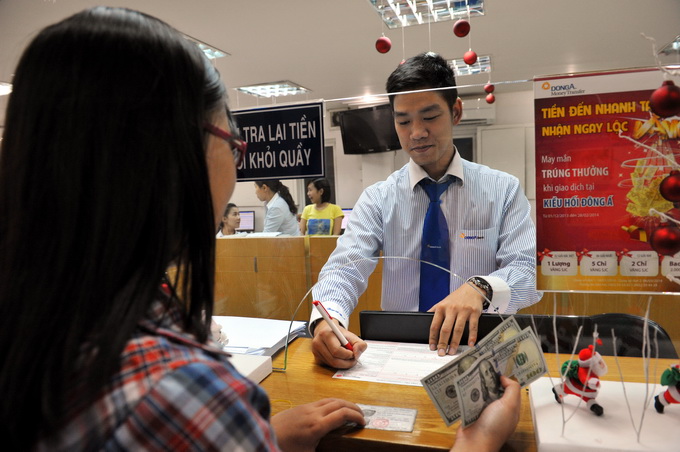Seven branches of foreign banks and one foreign-owned financial leasing company are finalizing procedures to close their branches in two biggest cities of Vietnam to switch to new operational model, according to a recently released report of the Economic Committee of the National Assembly.
They are the Ho Chi Minh City branch of Australia and New Zealand Banking Group Ltd (ANZ), the HCMC branch of Hong Kong and Shanghai Banking Corp (HSBC), the HCMC branch of Standard Chartered Bank, the HCMC branch of Shinhan Bank, the HCMC and Hanoi branches of LaoVietBank, the HCMC branch of Credit Agricole SA and financial leasing company ANZ V-Track, said the Economic Committee’s report, citing data from the State Bank of Vietnam (SBV).
There are many reasons for the closures including the fact that some banks have changed their operational model to operate as 100-percent foreign-owned banks in Vietnam, said the report.
It is a normal step foreign banks often take after they are allowed by SBV to set up banks with 100-percent foreign capital in the Southeast Asian countries.
The SBV has revoked the licenses and officially put an end to the operations of the two branches in Hanoi and Ho Chi Minh City of LaoVietBank, Economic Commission said in the report.
Regarding the activities, the number of credit institutions in operation, and the reorganization, and dissolution of them, the report said the current banking system is designed to supply efficient banking services and products to meet the diverse needs of the economy.
The data in the report said that the current system has 47 commercial banks, including five state-owned commercial banks that have been equitized with the government holding a controlling stake, 33 joint-stock commercial banks, four joint venture banks, five banks with 100-percent foreign capital, two policy banks, and 53 branches of foreign banks.
There are also 28 non-credit institutions, one cooperative bank, 1,144 people's credit funds and two microfinance institutions.
In particular, commercial banks continue to play a dominant role in the whole system, and local commercial banks still have an edge in its widespread network across the country over foreign banks, said the report.
According to SBV data, as shown in the report, in the period of 2011-2013, the number of credit institutions decreased by 4 joint-stock commercial banks and 2 credit organizations, and three non-bank affiliates of foreign banks have been converted from dependant to independent branches.
According to data compiled and published by Reuters last month, the fully state-owned banks in Vietnam included Agribank, Vietnam Development Bank, Vietnam Bank for Social Policies, and Co-operative Bank of Vietnam with total assets worth around VN1,180 trillion (US$55.4 billion)
Meanwhile, Vietnam has 37 partly equitized banks.
Vietnam, with a population of 88.7 million, had 68.5 million bankcards by the end of March 2014, up 3.5 percent from December 2013, based on central bank data, Reuters reported.
|
Standard Chartered Bank (Vietnam) Limited on September 30 issued a press release explaining the misinterpretation of information regarding changes being made to Standard Chartered’s holdings in Vietnam. In 2009, Standard Chartered transferred all assets and liabilities in Vietnam from the Ho Chi Minh Branch of Standard Chartered PLC to the newly established Standard Chartered Bank (Vietnam) Limited entity, a wholly-owned subsidiary of the British banking company. |


















































